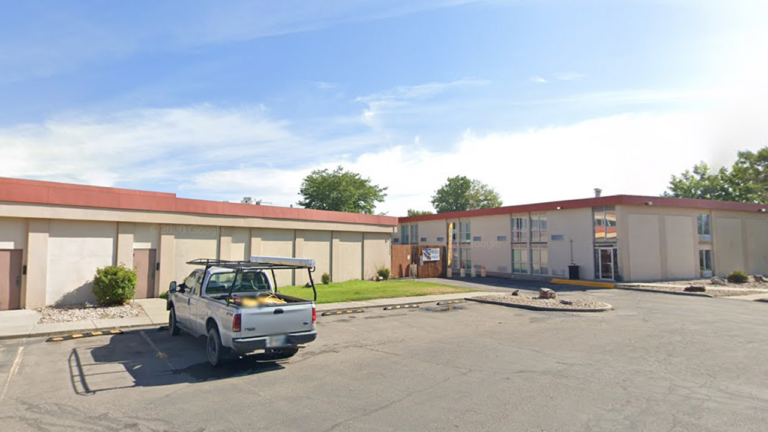Homeless Squatters Damage Motel and Leave Feces in Casper, Wyoming Downtown
A local motel in Casper, Wyoming, has suffered significant destruction due to homeless squatters, leaving behind extensive damage that would cost millions to repair. Additionally, the downtown area has been marred by the presence of hundreds of pounds of human feces, according to the city’s mayor.
Mayor Bruce Knell expressed his astonishment at the situation, comparing it to issues typically associated with third-world countries. He conveyed this sentiment by stating, “It’s like nothing I’ve ever seen. It’s third-world-country stuff happening in Casper, Wyoming.”
Casper, the second-most populous city in Wyoming with nearly 60,000 residents, is faced with a homeless population of approximately 200 individuals. The homeless squatters have taken over a vacant Econo Lodge motel, causing extensive damage amounting to millions of dollars in repairs. Some homeless individuals have also occupied abandoned homes without basic amenities such as running water or electricity.
“The motel was destroyed completely. It’s a terrible situation,” Mayor Knell remarked.
The motel had previously faced closure due to flooding and was later seized by homeless squatters, resulting in the substantial damage reported by the mayor.
Mayor Knell further emphasized the unsafe and inhabitable conditions created by the squatters, prompting concerns about the well-being of the occupants.
The property, which is currently owned by a bank following foreclosure, has been boarded up to prevent further access. Meanwhile, the presence of homeless individuals in the downtown area has led to the accumulation of at least 500 pounds of human feces, causing significant hygiene concerns.
Mayor Knell acknowledged the complexities of the situation, recognizing that legal action or arrests alone may not provide a solution. He expressed the need for law enforcement to have effective tools to address squatting-related issues.
The city council is deliberating on adopting a new code that would require suspected squatters to obtain written consent from property owners and establish time limits for camping on properties, even with permission.
The mayor attributed a portion of the city’s crime rate to the homeless squatters, citing their involvement in criminal activities due to desperate circumstances.
Notably, Mayor Knell clarified that the local homeless shelter is not the root cause of the problem. He instead attributed the issues to homeless individuals who have been expelled from the shelter or are unable to gain entry and subsequently become a disruptive presence in the community.
The mayor highlighted that some segments of the homeless population, including those affected by substance abuse or mental health challenges, struggle to conform to societal norms. Consequently, they are unable to access shelter services and engage in disruptive behavior within the community.
Mayor Knell acknowledged the desire of homeless individuals for stable housing and a place to call their own, similar to sentiments expressed by the homeless population on the West Coast.
Despite the ongoing challenges, the mayor believes that addressing the underlying issues is essential for finding lasting solutions to the complex problem of homelessness.
[Note: Emphasis added for clarity and engagement.]

